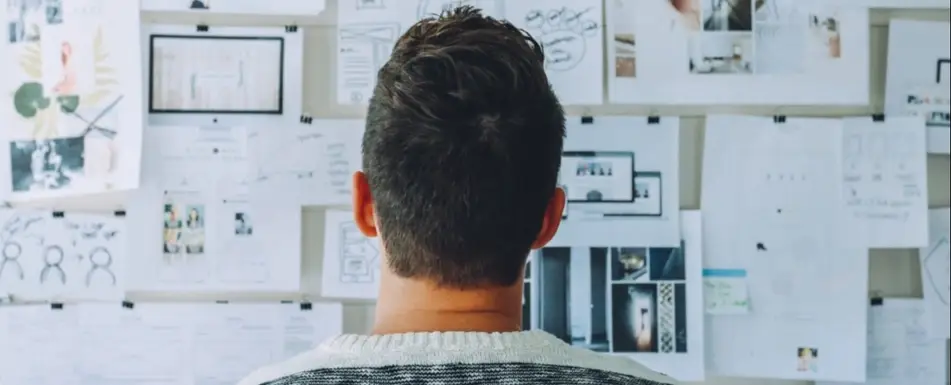What's Your Greatest Weakness? How to Answer the Most Overused Interview Question

I will never forget the sinking feeling I experienced when the hiring manager asked me about my greatest weaknesses. The silence seemed interminable until I babbled something, which I've thankfully forgotten. Fortunately, I still landed the job, but 12 years later, the experience sticks in my mind as my interview nightmare moment.
Interviewing should be a dialog between a hiring manager and candidate that helps both evaluate fit. While the employer assesses the job seeker’s skills, readiness, and motivation, the candidate should be appraising the organization’s culture and whether it aligns with her interests and values.
Mastering the art of the interview is a critical skill of any hiring manager. Unfortunately, few managers receive interview training, relying instead on instinct and misinformation. The result is that many hiring managers fall back on old and ineffective techniques.
When a hiring manager doesn’t excel at running an effective interview, interviewees end up having to respond to questions that don’t really uncover the most salient information.
“What’s your greatest weakness?” is a great example of a question that, while overused, isn’t particularly useful. It often evokes canned answers like, “I work too hard,” or “I'm a perfectionist,” that reveal little about the candidate.
But regardless of why someone asks the weakness question, if a candidate is prepared for it, the answer can offer insight into her level of self-awareness and motivation. Responding to the question gives the job seeker an opportunity to show that she can be calm under pressure while also demonstrating problem-solving abilities.
We all make mistakes. The key is what we’ve learned from them.
The weakness question trips up a lot of people, and if you haven’t thought about how you may respond to this one in advance, you may become defensive or wishy-washy. After all, is anyone truly comfortable talking about the less impressive parts of their skills or abilities?
But here’s the thing: It’s important to be honest without resorting to canned, predictable answers. Ultimately, most employers want to hire someone who is insightful about their abilities and able to honestly acknowledge areas that need improvement.
Knowing how to approach the weakness question is a skill that can be developed. Below are recommendations for crafting your response.
Everyone has weaknesses
The first step in responding to a question about your weakness is to recognize that no one is perfect. We all make mistakes. The key is what we’ve learned from them. In fact, Stanford professor Tina Seelig requires her students to write a “failure resume,” to acknowledge their setbacks and reflect on what they learned. A first step in your preparation is to honestly reflect on and jot down some of your actual failures or weaknesses.
What did you learn?
Consider stumbling blocks you've encountered and what you learned about yourself from each. Is presenting in front of groups challenging? Do you avoid speaking opportunities as a result? Do you shy away from giving feedback because you hate conflict, and assume that you’re not a candidate for management opportunities because of it? Think about the chances you didn’t take because of your fear of vulnerability. Next, take a look at what you did to move beyond your perceived weakness.
What have you done?
Self-aware, growth-oriented individuals look for opportunities to learn new skills and develop strengths. If you hate speaking in front of groups, perhaps you joined Toastmasters or turned to online training to gain presentation experience and practice. That’s an example of doing something about a weakness. Maybe as a new executive director, you didn’t delegate to others because you thought you could do a better job yourself. You realized that others saw you as controlling and you were feeling overwhelmed, so you started delegating more. That’s another example of putting your learning into action.
Success in talking about a real weakness requires preparation and practice. Writing down your answer and practicing with someone willing to play the role of mock interviewer will build your confidence and readiness to answer the question with confidence on your next interview. Here are some additional tips to prepare for the big day.
Did you enjoy this post? There's plenty more where this came from! Subscribe here for updates.
About the Author | Susan Peppercorn is a career coach and writer with a passion for helping individuals go from surviving to thriving in their careers. Through her knowledge of personal branding, hiring practices and social media, she enables professionals to realize their career goals. Susan is founder and CEO of Positive Workplace Partners and author of the soon to be published book, Ditch Your Inner Critic: Let Go of Perfection to Thrive in Your Career.
Susan Peppercorn is a career coach and writer with a passion for helping individuals go from surviving to thriving in their careers. Through her knowledge of personal branding, hiring practices and social media, she enables professionals to realize their career goals. Susan is founder and CEO of Positive Workplace Partners and author of the soon to be published book, Ditch Your Inner Critic: Let Go of Perfection to Thrive in Your Career.


